WordPress vs. Microsoft Forms: the best platform for a seamless web experience
Discover how WordPress compares to Microsoft Forms regarding features and usability. Find out which platform provides the competitive advantage your business deserves.
Get startedSee how Instapage stacks up against the competition
| Feature | Instapage | Other builders |
| Drag-and-Drop Tools | ||
| Conversion-optimized templates | ||
| Manual and AI-powered A/B Tests | ||
| AI content suggestions | ||
| Popups and sticky bars | ||
| Canvas and grid blocks | ||
| Reusable and global elements | ||
| Form and popup builders | ||
| Built-in Heatmaps | ||
| Central analytics dashboard | ||
| Ad-to-page personalization and collections | ||
| Contacts, lists, and email | ||
| Dedicated, full-service CRO experts | ||
| Enterprise-ready platform |
Leading the way in building high-performing landing pages





Why Instapage is the smarter choice for your campaigns
Get everything you need to build, scale, and optimize high-converting landing pages—without coding.
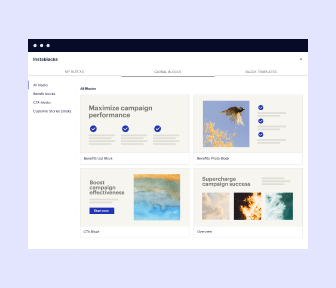
Easier page building without coding
Instapage offers a flexible and seamless page creation experience with a library of 500+ conversion-focused layouts, Instablocks®, a drag-and-drop builder, and AI content generation. With technologies like Thor Render Engine®, you can create on-brand, mobile-responsive landing pages that load quickly and start converting during initial visitor clicks.
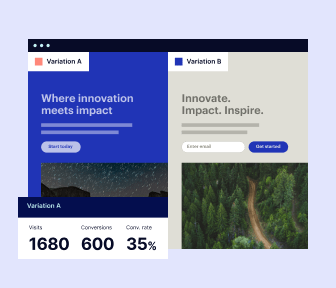
More insights — better results
Instapage lets you see in detail how each landing page experience and variation is performing so you can make targeted changes that boost page conversions. Use heatmaps for a better understanding of on-page activities, run A/B tests and AI-assisted experiments, and then track and evaluate results within robust analytics dashboards.
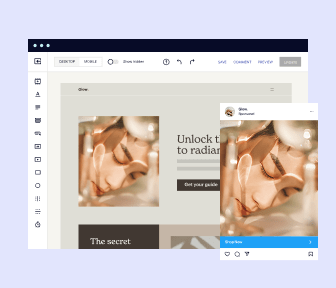
More personalized experiences
Instapage lets you quickly create high-performing landing pages tailored to each of your ad campaigns. Deliver personalized experiences for distinct audiences using dynamic text replacement. Effortlessly align specific advertisements to unique pages with AdMaps. Monitor audience-level metrics using our advanced data tools.
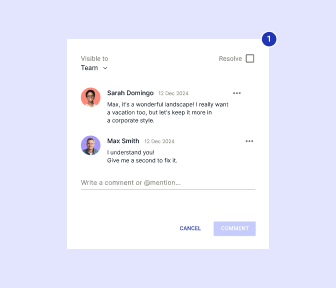
Built-in collaboration
Instapage collaboration capabilities bring your entire team together to speed up the process of landing page review, approval, and launch. No more frustrating and unnecessary revisions or edits scattered across emails. Provide instant feedback, conduct real-time page edits, and securely share your pages with outside stakeholders.
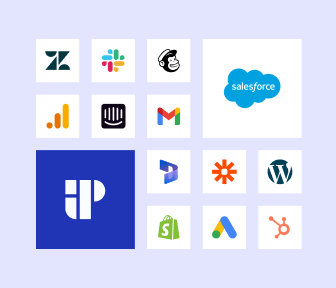
Free up time for your business
Invest time into business growth, not busy work. Launch landing pages faster with reusable forms and templates. Build once, reuse forever.
Explore all integrations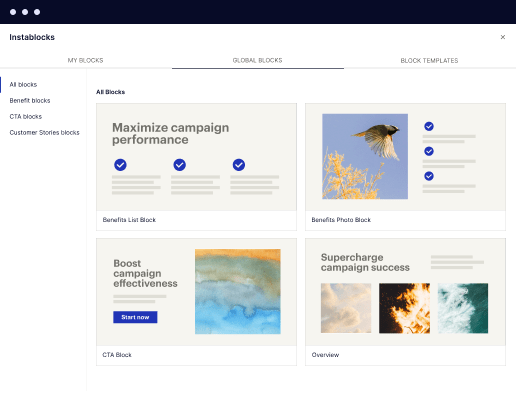
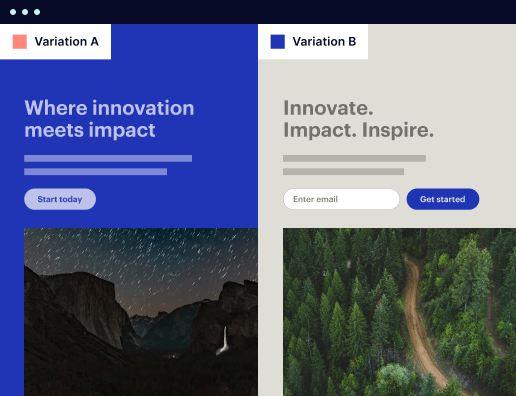
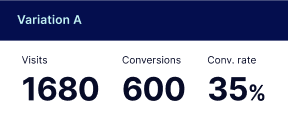
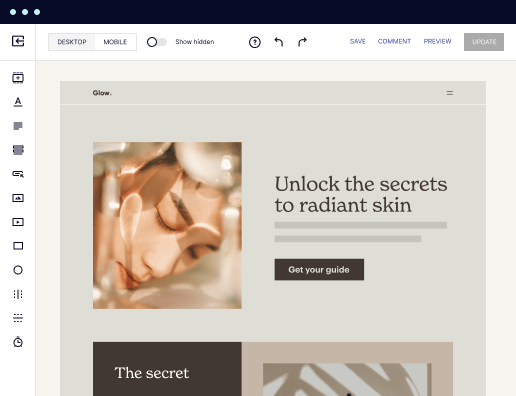

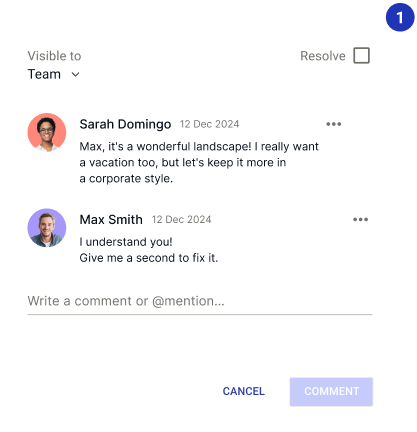
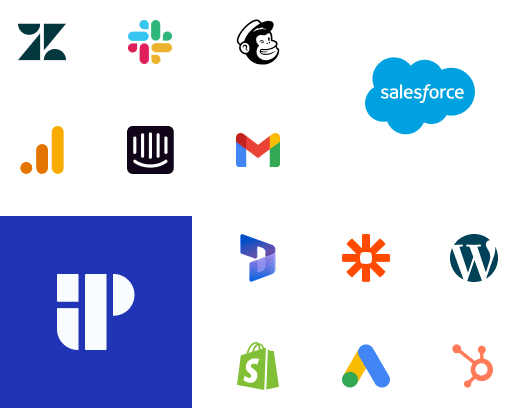
Easier page building without coding
Instapage offers a flexible and seamless page creation experience with a library of 500+ conversion-focused layouts, Instablocks®, a drag-and-drop builder, and AI content generation. With technologies like Thor Render Engine®, you can create on-brand, mobile-responsive landing pages that load quickly and start converting during initial visitor clicks.
More insights — better results
Instapage lets you see in detail how each landing page experience and variation is performing so you can make targeted changes that boost page conversions. Use heatmaps for a better understanding of on-page activities, run A/B tests and AI-assisted experiments, and then track and evaluate results within robust analytics dashboards.
More personalized experiences
Instapage lets you quickly create high-performing landing pages tailored to each of your ad campaigns. Deliver personalized experiences for distinct audiences using dynamic text replacement. Effortlessly align specific advertisements to unique pages with AdMaps. Monitor audience-level metrics using our advanced data tools.
Built-in collaboration
Instapage collaboration capabilities bring your entire team together to speed up the process of landing page review, approval, and launch. No more frustrating and unnecessary revisions or edits scattered across emails. Provide instant feedback, conduct real-time page edits, and securely share your pages with outside stakeholders.
Free up time for your business
Invest time into business growth, not busy work. Launch landing pages faster with reusable forms and templates. Build once, reuse forever.
Explore all integrationsGet started with Instapage in a few steps
-
Create your Instapage account
Start with Instapage by signing up via Google or your email. You'll get access to a free 14-day trial to discover Instapage capabilities. Feel free to cancel anytime during the 14-day trial if you decide that our product is not suitable for your business. -
Build and personalize your page
Create your first landing page from scratch or choose a template from 500+ customizable layouts. Use the drag-and-drop builder to add page elements, fonts, and backgrounds, refine content with AI, or add custom HTML, Javascript, and CSS. -
Review and make edits
Collaborate on page designs and streamline review processes. Invite your team members and stakeholders to review, edit, and provide feedback on your landing page. Collaborate knowing your page is confidential and only accessible to authorized users. -
Publish and track page performance
Publish your page to a domain or custom URL. Connect your pages to the ads you've created and track page performance within the analytics dashboard, run A/B tests and AI experiments, analyze results, and continuously optimize your landing page to maintain high conversions.
WordPress vs. Microsoft Forms: A Competitive Analysis with a Twist
In the digital realm where landing pages are king, two platforms stand out as notable contenders: WordPress and Microsoft Forms. Each boasts unique strengths that cater to distinct segments of the market. Whether you’re a budding entrepreneur or an established business, choosing the right tool can seem monumental. Today, we’ll explore these platforms, shedding light on their functionalities while keeping an eye on another player warming up in the wings: Instapage. With powerful capabilities and diverse applications, finding the right fit for your goals is critical. So buckle up as we embark on this in-depth comparison that promises to reveal some unexpected insights along the way.
Introducing the Giants of Digital Marketing
Before we dive into the comparison, let’s familiarize ourselves with our heavyweight contenders. WordPress is the lush garden where countless websites bloom, providing limitless potential for customization and growth. It has transformed content management and served as a robust platform for everything from small blogs to massive e-commerce sites. On the other side of the ring, Microsoft Forms takes a more streamlined approach, focusing on simplicity and coordination. It’s the go-to choice for users who need to create forms and surveys quickly – think of it as a nimble fighter darting around the ring. While both platforms thrive in their respective domains, there’s a newcomer, Instapage, who comes equipped to challenge them both with landing page focus and refined marketing strategies. Each of these platforms represents a different strategy for building an online presence, and comparing them provides valuable insight into what each can offer your business.
Feature Face-off: Who Packs the Best Punch?
When it comes to features, both WordPress and Microsoft Forms bring significant strengths to the table. WordPress boasts an expansive library of plugins and themes, allowing users to personalize their websites to impressive detail. It supports an array of features such as SEO optimization tools, e-commerce integration, and customizable menus. Microsoft Forms, however, is no slouch. It simplifies the user experience by enabling quick creation and distribution of forms with ease. While both platforms have something different to offer, keep an eye on Instapage, which comes flying in with specialized features designed to enhance conversion rates. The exciting part is how each platform approaches its unique challenges, making it crucial for users to understand what they need most.
Usability: Navigating the Learning Curve
Navigating software can often feel like an intense boot camp for marketers, but not all experiences are the same. WordPress offers a treasure trove of options, providing remarkable flexibility – but, ah, the learning curve can feel more like a steep hill to climb! New users may find themselves juggling various plugins and settings as they seek to design their ideal site. Conversely, Microsoft Forms caters to a broad audience looking for quick results without a complex setup process. It's incredibly user-friendly, designed for those who need results fast with minimum hassle. The true winner in the usability contest ultimately depends on the user's technical prowess and requirements. Each platform supports a different level of skill, making this a fascinating round in our showdown.
What Makes WordPress Tick:
- Extensive plugin ecosystem for added functionality.
- Highly customizable themes for branding flexibility.
- SEO tools to help improve search engine visibility.
- E-commerce capabilities for online stores.
- Robust community support and documentation.
What Sets Microsoft Forms Apart:
- Simple and intuitive design for quick form creation.
- Integration with other Microsoft Office 365 tools.
- Real-time collaboration features.
- Instant feedback collection and analysis.
Strengths Common to Both Platforms:
- Ability to deploy online forms for various purposes.
- Data collection features to gather insights.
- Cross-platform support with mobile-friendly designs.
- Security measures to protect user data.
- Integration capabilities with third-party applications.
- User roles and permissions to enhance collaboration.
As we wrap up this comparison round, it’s apparent that both WordPress and Microsoft Forms have their respective strengths. However, it's worth noting that Instapage is quietly honing its talents, proving to be a formidable competitor with features tailored for enhancing online marketing capabilities.
Performance: The Speed Factor
In the fast-paced digital world, performance can be a game-changer. Speed is essential, and nothing frustrates visitors more than a sluggish site. Both WordPress and Microsoft Forms handle performance well, but there are nuances worth observing. WordPress can sometimes suffer from slow loading times, especially with extensive use of certain plugins, making optimization crucial. Imagine waiting for a page to load while feeling like you're stuck in molasses during winter – that’s not a feeling any user enjoys! On the other hand, Microsoft Forms enjoys the edge when it comes to loading times, being lightweight and fast, which can significantly reduce bounce rates. Companies seeking optimal performance may need to analyze their specific needs and adjust their strategies accordingly.
Support: The Safety Net
When things go awry, support channels and community resources become essential. WordPress benefits from its vast community, offering a wealth of forums, guides, and documentation. Users can turn to online communities for help, ensuring that assistance is merely a search away. Microsoft Forms, while simpler, provides direct support and resources through Microsoft’s customer service. Picture the support teams as your trusty sidekicks, always on standby to offer a fast solution or two. Each platform has its own strengths, inviting users to consider the kind of support that caters best to their needs.
Pricing Battle: Comparing Strategies
Advantages of WordPress Pricing Strategy:
- Open-source platform with no initial software costs.
- Flexible pricing based on hosting and premium plugins.
- Affordable plans for hosting and domain registration.
- Potential for free themes and plugins to reduce costs.
Advantages of Microsoft Forms Pricing Strategy:
- Included with Office 365 subscriptions, adding value.
- No additional charges for basic form functionalities.
- Simple pricing structure to understand.
- Affordable upgrades for advanced features.
In the pricing arena, both platforms have developed unique strategies to accommodate their users. WordPress's flexibility holds appeal, but for businesses seeking value, Instapage offers an impressive pricing model that provides robust tools without breaking the bank.
By laying out the pricing plans, it's clear how each platform positions itself! With WordPress, you have the freedom to customize according to your needs, but this often leads to surprises in the least expected places! Microsoft Forms can simplify expenses but may leave some wanting more. Buyers should be wise as they shop.
Instapage: The Underdog Waiting to Shine
Here comes Instapage, the emerging contender that has been observing the match from the sidelines. With a strong focus on landing pages designed to convert, Instapage offers unique features that set it apart, such as A/B testing, integration with various marketing tools, and user-friendly designs aimed at boosting conversions. This platform may be the secret sauce that sets your marketing strategy apart without the endless complexities that come with some of its rivals. For anyone seeking to supercharge their online presence with ease, Instapage might just be the answer. With its fast-loading pages and comprehensive analytics, businesses can monitor success without missing a beat.
As we wrap up this comparison, let’s reflect on the importance of making informed choices. Each platform can cater to diverse needs, and the right selection paves the way for business success. With Instapage waiting in the wings, it's crucial to assess personal or business goals and utilize the right platform that aligns with those aspirations. By considering options beyond the familiar horizons, readers might find their next big marketing breakthrough.










